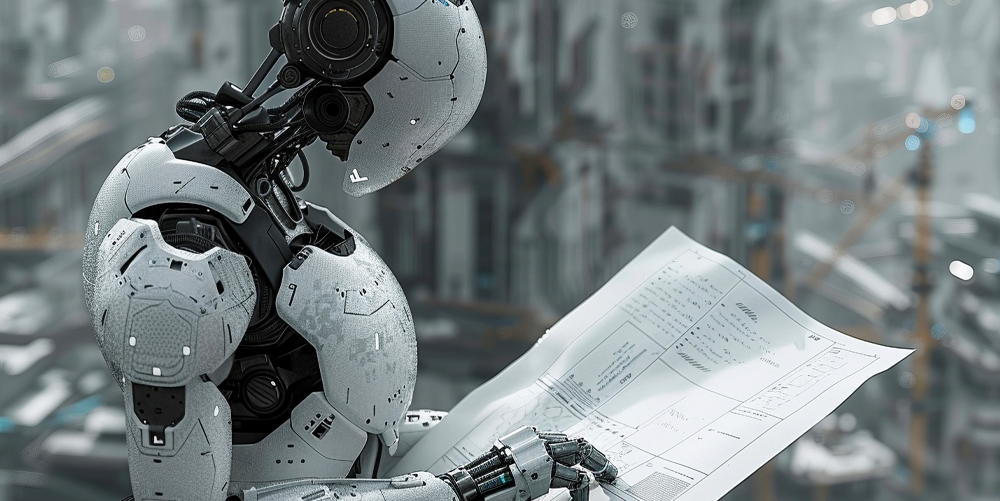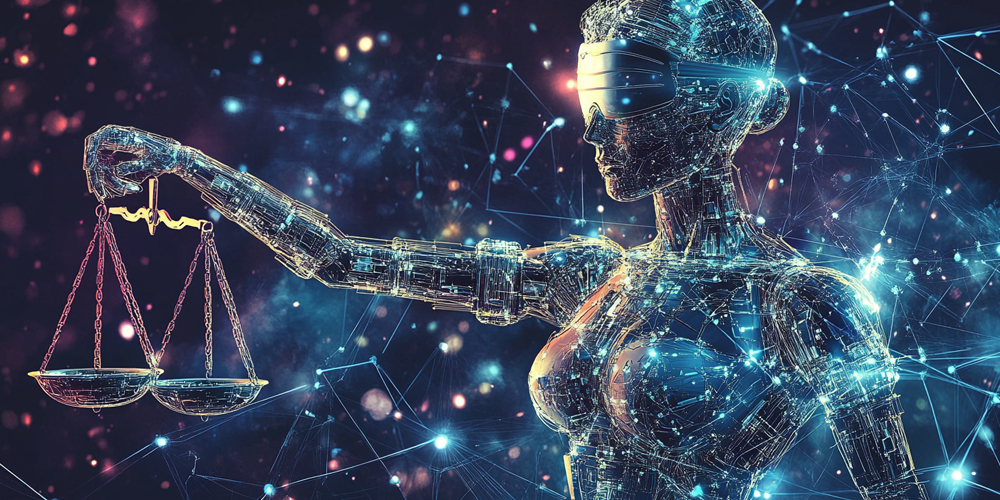Artificial intelligence (AI) is not just a buzzword; it is a transformative force reshaping industries globally. As we delve into the world of AI, we will explore the key trends that are driving innovation and efficiency. This article highlights the implications of AI across various sectors and how businesses can harness its power.
1. Automation of Routine Tasks
The automation of routine tasks is one of the most significant trends in AI. Companies are increasingly relying on AI to handle repetitive activities, which allows human workers to focus on more strategic initiatives. This shift towards automation is not just a passing trend; it is a fundamental change in how businesses operate across various sectors.
Enhancing Productivity
AI-driven automation tools enhance productivity by streamlining workflows. These tools can handle tasks that require little to no human intervention, allowing employees to concentrate on higher-level responsibilities. For instance, robotic process automation (RPA) can manage data entry, invoice processing, and other repetitive tasks with precision. By automating these processes, organizations can ensure that work is completed quickly and accurately, minimizing the chances of errors that can occur with manual input.
This automation not only improves efficiency but also frees up employees to engage in more value-added activities. When workers are no longer bogged down by monotonous tasks, they can focus on creative problem-solving, innovation, and strategic planning. This shift in focus can lead to more significant contributions to the organization and a more fulfilling work environment.
Cost Efficiency
By implementing AI automation, organizations can significantly cut costs. Labor expenses decrease as machines take over mundane tasks, which can lead to a reduction in the workforce required for these tasks. Consequently, employees can be reallocated to roles that better utilize their skills, further optimizing operational efficiency.
In addition to reducing labor costs, automation can lead to savings in other areas as well. For example, by minimizing errors in processes like invoicing or data entry, companies can reduce the costs associated with correcting those mistakes. The savings can then be reinvested into innovation and growth, creating a positive feedback loop that enhances the organization’s overall performance.
Real-World Examples
Many companies are already reaping the benefits of AI automation. For example, banks use AI to process loan applications, resulting in faster approvals and improved customer satisfaction. By automating the evaluation process, banks can analyze vast amounts of data in real-time, leading to quicker decision-making. This not only enhances customer experience but also improves operational efficiency.
Similarly, e-commerce companies leverage AI to manage inventory and streamline supply chain operations. Automated systems can predict demand, manage stock levels, and even reorder products without human intervention. This capability not only ensures that businesses are prepared for customer demand but also reduces the risk of overstocking or stockouts.
Furthermore, in the manufacturing sector, AI automation plays a crucial role in quality control. Machines equipped with AI can detect defects in products during the production process. This real-time monitoring leads to immediate corrections, reducing waste and improving product quality. As a result, companies can maintain high standards while lowering production costs.
In conclusion, the automation of routine tasks through AI is transforming how businesses operate. By enhancing productivity, achieving cost efficiency, and providing real-world benefits across various sectors, AI is paving the way for a more efficient and innovative future. Organizations that embrace these changes will be better positioned to compete and thrive in the ever-evolving business landscape.

2. Personalized Customer Experiences
Personalization is becoming a critical aspect of customer engagement, and AI is leading this charge. By analyzing consumer data, AI can offer tailored recommendations and experiences.
Recommendation Engines
Streaming services like Netflix and Amazon Prime employ AI algorithms to analyze user behavior. These platforms suggest content based on viewing history, ensuring that users find shows and movies that match their interests.
Customized Marketing Campaigns
AI enables businesses to create targeted marketing campaigns. By segmenting audiences based on data analytics, companies can deliver personalized messages that resonate more effectively with consumers. This increases conversion rates and fosters customer loyalty.
3. Advancements in Natural Language Processing (NLP)
NLP is an exciting area of AI that focuses on the interaction between computers and human language. Recent advancements in NLP are transforming customer service and data analysis.
Enhanced Customer Support
AI-powered chatbots are now capable of understanding and responding to customer inquiries in real time. These bots can handle a wide range of questions, providing users with instant support without human intervention.
Sentiment Analysis
Organizations utilize NLP to conduct sentiment analysis on customer feedback. By assessing online reviews and social media posts, businesses can gauge public sentiment towards their brand, products, or services.
4. AI in Healthcare
The healthcare industry is undergoing a revolution due to AI technologies. From diagnostics to treatment planning, AI enhances patient care and operational efficiency.
Predictive Analytics
AI can analyze vast amounts of patient data to predict outcomes and identify at-risk patients. This proactive approach allows healthcare providers to intervene early and potentially save lives.
AI in Medical Imaging
AI algorithms are making strides in medical imaging by improving the accuracy of diagnoses. For instance, AI systems can detect anomalies in X-rays and MRIs more quickly than human radiologists, leading to faster treatment decisions.
5. AI in Finance
The finance sector is leveraging AI for improved decision-making and risk management. From fraud detection to algorithmic trading, AI is reshaping how financial institutions operate.
Fraud Detection Systems
AI technologies monitor transaction patterns to identify potential fraud. By analyzing historical data, these systems can flag unusual activities in real time, protecting both consumers and businesses from financial losses.
Algorithmic Trading
AI algorithms analyze market data and execute trades at unprecedented speeds. This capability allows financial institutions to capitalize on fleeting market opportunities, significantly enhancing trading efficiency.
6. AI in Manufacturing
AI is transforming manufacturing processes by enabling smart factories. These facilities utilize interconnected devices and AI technologies to enhance production efficiency.
Predictive Maintenance
AI can predict equipment failures before they occur by analyzing sensor data. This predictive maintenance approach minimizes downtime and reduces repair costs, leading to a more efficient production line.
Quality Control
AI-powered visual inspection systems can detect defects in products with high accuracy. By ensuring quality control at every stage of production, manufacturers can reduce waste and improve customer satisfaction.
7. Ethical Considerations in AI
As AI technology expands, ethical considerations must be addressed. Organizations need to ensure responsible AI practices to avoid potential pitfalls.
Data Privacy and Security
With AI systems processing vast amounts of personal data, privacy concerns arise. Companies must implement strong data protection measures to safeguard user information and comply with regulations.

Addressing Bias in AI
Bias in AI algorithms can lead to unfair outcomes. Organizations need to regularly audit their AI systems and use diverse datasets for training to minimize bias and ensure fairness.
8. The Future of AI: What to Expect
The future of AI is bright and filled with potential. As technology continues to evolve, we can expect significant advancements across various sectors.
Integration with Other Technologies
AI will increasingly integrate with other emerging technologies, such as the Internet of Things (IoT) and blockchain. This synergy will create more robust solutions that drive innovation and efficiency.
Collaborative AI
Future AI systems may enable better collaboration between humans and machines. By combining human intuition with machine learning capabilities, businesses can unlock new levels of creativity and problem-solving.
Conclusion
The rise of AI is transforming industries at an unprecedented pace. From automating routine tasks to enhancing customer experiences, AI is reshaping the business landscape. Understanding these key trends is essential for organizations looking to thrive in the future.
As we navigate the evolving AI landscape, ethical considerations will play a crucial role. Companies that prioritize responsible AI practices will build trust and maintain a competitive edge. Embracing AI’s potential will be key to unlocking future innovations.
The future is bright for those who adapt to these changes and harness the power of AI. By staying informed and proactive, businesses can lead the way in this exciting new era of technology.





